Equality, Diversity, and Inclusion Policy
The following document sets out ThirdSpace Theatre CIC’s (TST) policy on equal opportunities in relation to recruitment, staff, contractors, and our pool of freelancers as well as equal opportunities in relation to service users and members. TST is committed to a policy of treating its freelance staff, participants, volunteers and job applicants equally. No one shall receive less favourable treatment or consideration on the grounds of race, colour, religion or belief, nationality, ethnic or national origins, sexual orientation, gender reassignment, age, disability, marital status or part-time status or be disadvantaged by any conditions that cannot be justified as necessary on operational grounds. TST is committed to acknowledging, celebrating and encouraging variety and diversity in the types of projects that we engage in and the people we run these projects with and for.
Participants and Service Users (Children and Young People)
All staff (including freelancers and contractors) have personal responsibility for the practical application of TST’s EDI policy, which extends to the treatment of participants and visitors.
Attending a youth theatre can affect the lives of children and young people significantly, making it of vital importance to uphold good practice and the law as set out in Equality Act 2010.
TST aims to give to each child or young person the best possible experience during their time using our services and engaging with the organisation.
TST is an inclusive organisation with an EDI recruitment policy that also applies to the enrolment of its students. We ensure that children and young people from all backgrounds and experiences are offered the same opportunity and support needed to attend and participate whether for social connection, education, personal development, pleasure/hobby, or as a stepping stone to a future career. All young people are welcome to join TST regardless of social, political, religious and cultural background, sexual orientation or gender.
Entry into the weekly classes is operated on an open-access basis and auditioning is not required. Auditions only take place during the public, professional-adjacent productions, performed in venues such as Brighton Dome and as part of the Brighton Festival.
Some children and young people can have a range of individual needs including SEND (Special Educational Needs and Disability) or more complex behaviours that our teachers may be able to integrate into a TST club effectively. However, it must also be recognised that such children and young people can be vulnerable and not all children will be able to cope with the ensemble, collaborative style used at TST. If TST feels that a child or young person will not benefit or be able to engage with this style of delivery, parents/carers/guardians will be consulted to investigate a way forward if possible. Parents should note that it may not always be possible to include children and young people who, after attempts have been made to integrate and accommodate individual needs, are either disruptive to the learning and participation of the main body of the group in which they are placed or who are not able to access learning or participate and engage in the learning activity. TST will, where possible and where resources are available, make reasonable adjustment to accommodate the physical, behavioural and learning needs of the child or young person.
Staff, freelancers, contractors, and freelancers
Principles
The Equality Act 2010 legally protects people from discrimination in the workplace and in wider society.
There should be no discrimination on account of race, colour, perceived or actual religion or belief, ethnic or national origins, perceived or actual sexual orientation, gender reassignment, perceived or actual age, disability, nationality or marital or part-time status.
TST will appoint, train, develop, reward and promote on the basis of merit and ability.
All freelance staff have personal responsibility for the practical application of TST’s equal opportunities policy, which extends to the treatment of job applicants, employees, participants and visitors.
Special responsibility for the practical application of this policy falls upon the Artistic Director and the General Manager.
In the case of any doubt or concern about the application of this policy in any particular instance, consult Tanushka Marah.
TST will keep under review its policy, procedures and practices on equal opportunities.
Equal opportunities code of practice
Objectives
TST is committed to making full use of the talents and resources of all its team and to provide a healthy environment which will encourage good and productive working operations within the organisation. This code of practice describes how the policy is to be applied throughout the Company.
Code of practice
An equal opportunities policy statement will be sent to all staff.
The Company Manager will regularly monitor the effectiveness of this policy to ensure that it is working in practice and will review and update this policy as and when necessary.
Recruitment and selection
The following principles should apply whenever recruitment or selection for positions takes place:
- individuals will be assessed according to their personal capability to carry out a given job
- assumptions that only certain types of person will be able to perform certain types of work must not be made
- any qualifications or requirements applied to a job which have or may have the effect of inhibiting applications from certain types of person should only be retained if they can be justified in terms of the job to be done
- any age limits applied to a job should only be retained if they can be justified in terms of the job to be done
- recruitment solely or primarily by word of mouth should be avoided if its effect is or may be to prevent certain types of person from applying
- selection tests should be specifically related to job requirements and should measure the person’s actual or inherent ability to do or train for the work
- selection tests should be reviewed regularly to ensure they remain relevant and free from any unjustifiable bias, either in content or in scoring mechanism
- applications from different types of person should be processed in the same way;
- written records of interviews and reasons for appointment and non-appointment should be kept
- questions should relate to the requirements of the job; if it is necessary to assess whether personal circumstances may affect job performance, this should be done objectively without questions or assumptions being made which are based on stereotyped beliefs about certain types of person
- where the Company’s arrangements for recruitment and selection put disabled people at a substantial disadvantage due to a reason connected with their disability, reasonable adjustments to the arrangements should be made to eliminate or, if that is not reasonably practicable, reduce the disadvantage
- no decisions regarding recruitment or selection should be made by a person who has not read and understood this policy.
Grievances, disciplinary procedures, dismissals and redundancies
- Workers who, in good faith, bring a grievance (or assist another to do so) either under this policy or otherwise in relation to an equal opportunities matter will not be disciplined, dismissed or otherwise victimised for having done so
- No member of a particular group of workers will be disciplined or dismissed for performance or behaviour which would be overlooked or condoned in another group unless there is genuine and lawful justification for this
Disabilities
Under the Equality Act 2010 it is illegal for disabled people, including job applicants and employees, to be treated unequally to those who are not disabled.
Definition of disabilities
You’re disabled under the Equality Act 2010 if you have a physical or mental impairment that has a ‘substantial’ and ‘long-term’ negative effect on your ability to do normal daily activities.
- ‘substantial’ is more than minor or trivial, e.g. it takes much longer than it usually would to complete a daily task like getting dressed
- ‘long-term’ means 12 months or more, e.g. a breathing condition that develops as a result of a lung infection
There are special rules about recurring or fluctuating conditions, e.g. arthritis.
Progressive conditions
A progressive condition is one that gets worse over time. People with progressive conditions can be classed as disabled.
However, you automatically meet the disability definition under the Equality Act 2010 from the day you’re diagnosed with HIV infection, cancer or multiple sclerosis.
Some disabilities are immediately obvious, for example use of a wheelchair, while other disabilities may not be apparent at all, for example HIV infection.
Normal day-to-day activities are any of the following:
- mobility
- manual dexterity
- physical coordination
- continence
- ability to lift, carry or otherwise move everyday objects
- speech, hearing or eyesight
- memory or ability to concentrate, learn or understand
- perception of risk of physical danger.
Principles
The general equal opportunity principles set out earlier in this policy will apply in relation to disabled people.
TST is required by law to make reasonable adjustments to ensure that disabled people are able to participate in its business and activities on an equal basis with people who are not disabled.
TST will not, for a reason relating to a person’s disability, treat disabled people less favourably than it treats, or would treat, others to whom the same reason does not or would not apply.
If any arrangements made by or on behalf of TST, or any physical feature of premises occupied by TST, put disabled people at a substantial disadvantage compared to people who are not disabled, then TST will make reasonable adjustments to prevent this disadvantage.
TST will ensure that disabled workers are treated equally in the following areas:
- recruitment and selection;
- promotion and training;
Procedure
Due to the wide variety of potential disabilities and the likelihood of a disability affecting different people in different ways, it would be inappropriate to prescribe rigid rules on that reasonable adjustments that might need to be made to ensure that disabled people are treated equally. What is essential, however, is that all managers and other staff take all reasonably practical steps to ensure that disabled people are not less favourably treated or disadvantaged by comparison to people who are not disabled in relation to their work, working environment, or by arrangements made by TST.
The following general steps should always be considered where issues concerning disabilities arise or may arise.
- Be flexible. There may be many different ways to avoid discrimination or to minimise the effects of discrimination
- Consider any performance or attendance problems in the context of the person’s disability and its effect on their ability to meet performance and attendance targets
- Do not make assumptions. Whenever possible talk to the disabled person to find out how their disability affects them and what steps they think might help
- Do not discipline or dismiss a disabled employee for performance or attendance-based reasons without first establishing whether their performance or attendance is affected by the disability and that appropriate adjustments to accommodate the disability have been made
- Seek expert advice. Disability issues can be complex and you may need expert medical advice about a person’s disability, or expert technical advice about adjustments to technology or premises that might help the disabled person
- Think ahead. Try to anticipate the effects that certain arrangements may have on disabled people, even if there are no disabled employees at the time, to prevent problems occurring in the future.





